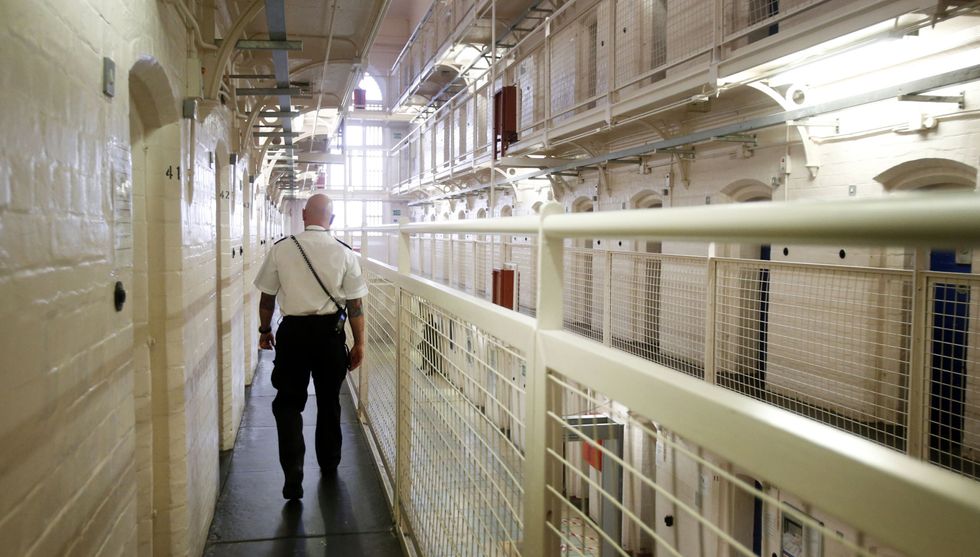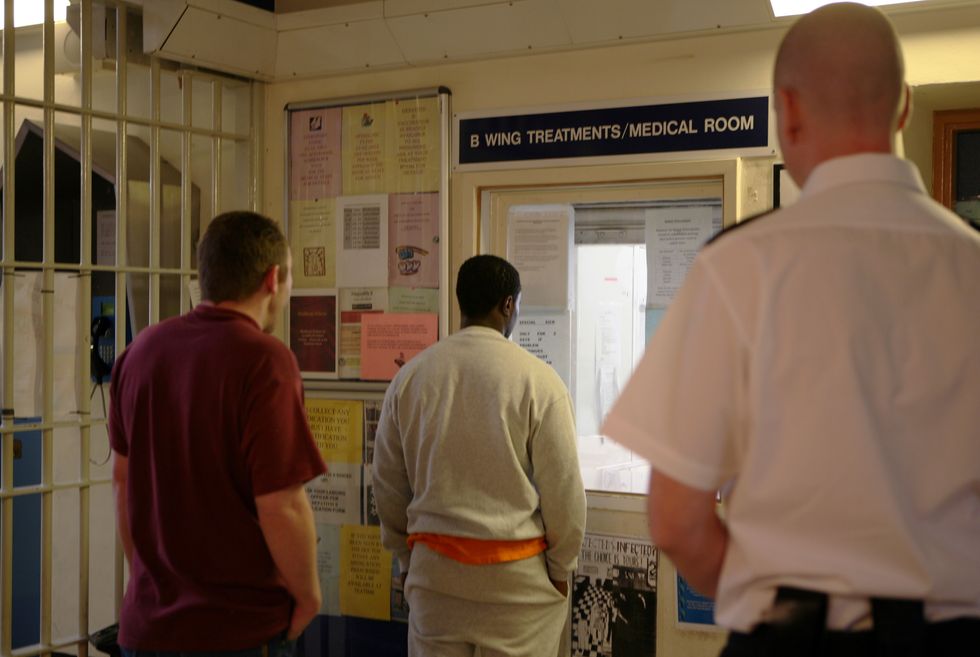Sir Keir Starmer’s Government has unveiled sweeping plans to reduce prison populations through increased use of community punishments and electronic tagging.
The decision comes after a damning report from the National Audit Office revealed the true extent of severe overcrowding in British prisons.
The changes will end short custodial sentences in favour of house arrest and technological monitoring, aiming to free up 6,000 prison places by 2027.
A senior Ministry of Justice source acknowledged the gravity of the situation.

A prison officer walking around a prison
PA
“This damning report sets out the true scale of the inheritance we were left with,” they told The Times.
“We will build the places the last government did not. But, as this report shows, we cannot build our way out of this crisis.”
The move comes as prison expansion plans face significant delays and budget overruns, with the NAO projecting a shortage of 12,400 prison places by the end of 2027.
The NAO report revealed that the existing prison expansion programme of 20,000 cells would not be completed until 2031, five years behind schedule and £4.2billion over budget.
Only 6,518 of the 20,000 extra places promised by the Ministry of Justice in 2021 have been delivered, with the report citing “unrealistic and overambitious timelines”.
LATEST DEVELOPMENTS:
 Shabana MahmoodPA
Shabana MahmoodPAEmergency measures introduced to address overcrowding have compromised prisoner rehabilitation and risk higher reoffending rates, according to the watchdog.
The NAO blamed the delays on the Ministry of Justice’s overestimation of how easily it would secure planning permission for half of its planned new prisons.
The report highlighted that prison capacity was being outstripped by supply due to tougher sentences and increased police officers on the streets.
The Ministry of Justice has responded with emergency measures to halve the projected 2027 shortfall in prison places from 12,400 to approximately 6,000.
These measures include allowing prisoners to be released after serving 40 per cent of their sentence rather than half, alongside changes to recall rules.
 A prison officer watches prisoners as they collect their medicationGETTY
A prison officer watches prisoners as they collect their medicationGETTYMore inmates will also be released under home detention curfew as part of the strategy.
Justice Secretary Shabana Mahmood has described the changes as creating “a prison environment but outside of prison”.
Mahmood will present a ten-year prison capacity strategy next week, outlining the government’s plan to meet future demand for prison places.
Former Conservative Justice Secretary David Gauke has been commissioned to review sentencing, with recommendations expected by spring.
The Ministry of Justice maintains its commitment to building the extra places pledged by the previous government.
 Robert Jenrick has called for tougher actionGB News
Robert Jenrick has called for tougher actionGB NewsShadow Justice Secretary Robert Jenrick has strongly criticised Labour’s approach to criminal justice, urging the government to focus on deporting foreign criminals instead.
“Instead of deporting foreign criminals and maximising court capacity to free up prison places, Labour appear to have given up,” Jenrick said.
He warned that Starmer’s plans would “leave criminals free to blight communities without consequence”.
“The public expects these criminals to be locked up, not let off to offend again on our streets,” he added.
Labour has also moved to address planning permission challenges by designating prisons as sites of national importance, placing approval decisions directly with ministers.
 People seen outside HM Prison Durham. Around 1,700 inmates are expected to be let out early in an attempt to ease overcrowding in prisonsPA
People seen outside HM Prison Durham. Around 1,700 inmates are expected to be let out early in an attempt to ease overcrowding in prisonsPAThis approach has already shown results, with Planning Minister Matthew Pennycook overruling inspectors to approve a new super-prison at HMP Garth in Leyland, Lancashire.
A Government source celebrated this development, telling The Times: “On the day the last Government was lambasted by the NAO for their planning failures, this new Government has shown that we will do what it takes to get prisons built.”
NAO head Gareth Davies offered a sobering final assessment.
He said: “The Government must learn lessons from the current prison capacity crisis to ensure the long-term resilience and cost-effectiveness of the prison estate.”